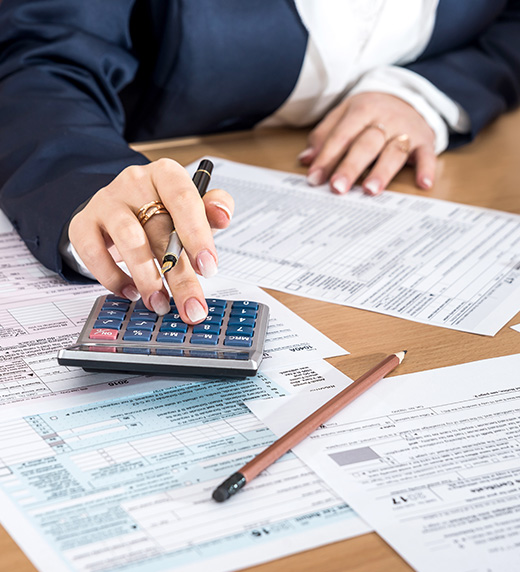
Table of Contents
Owning a plane offers a plethora of appealing benefits for you and your family. Everything from added convenience, comfort and flexibility to significant time savings and enhanced privacy can make private aircraft ownership a compelling option for high-net-worth individuals.
These advantages and others help explain why private aircraft sales are rising: Data from the General Aviation Manufacturers Association shows a 19.3% year-over-year increase in sales of new piston engine planes in the first quarter of 2025, with an 11% rise in business jets. But before you take flight, ground yourself with the facts. You can prevent a lot of headaches by learning about the myths versus the realities when you head for the skies — including understanding the personal tax implications that may come with ownership. Here are 10 fundamental truths you should know about buying and owning a plane.
REALITY: The financial equation for aircraft affordability is highly variable.
Being well-off doesn’t necessarily mean that owning a plane is right for you. Calculating the costs and benefits of aircraft ownership requires a complex analysis of multiple factors.
Before you decide to buy, it’s important to work with a qualified advisor who understands the regulatory and financial implications of private aircraft ownership. They’ll assess your reasons for buying a plane, learn how you plan to use it, project the approximate costs of ownership and gauge the potential benefits to help you make an informed decision.
REALITY: The true costs of ownership can far exceed the purchase price.
Buying a plane demands a large capital outlay, but that’s only the beginning. Operating costs and ongoing financial responsibilities may represent an unsustainable financial drain even if the purchase price is quite feasible.
The long-term math of aircraft ownership makes it imperative to understand the ongoing costs before you commit to buying. Expenses for fuel, excise taxes, maintenance, flight crews, hangar space and regulatory compliance are variable, and they’re not always easy to predict. A CPA that routinely works with clients nationwide who own planes can help you get an idea of what to expect beforehand, so you don’t wind up regretting your purchase.
REALITY: Accepting compensation from other passengers on a plane you own can have significant regulatory ramifications.
The Federal Aviation Administration (FAA) imposes a vast array of strict Federal Aviation Regulations (FARs) on all aircraft, including privately owned planes. While the FARs are designed to ensure safe air travel, they also represent a challenging regulatory maze that owners often struggle to comply with.
Private planes typically are subject to Part 91 of the regulations, which is the simplest and least restrictive set of rules, whereas the major airlines and other large commercial air carriers must comply with Part 121. Part 135 applies to smaller commercial operations such as charter planes with no more than 30 seats.
Accepting money for flight expenses from a passenger on your plane could make you subject to Part 135, triggering additional excise taxes, requirements for pilot rest schedules, weather-related flight limitations and other regulatory consequences. This is just one example of the many regulatory nuances that you need to be aware of if you’re going to own a plane.
The Federal Aviation Regulations (FARs) fall under Title 14 and Title 49 of the Code of Federal Regulations (CFR). The FAA refers to the relevant parts of aircraft regulations using a Title-CFR-Part# format (e.g., 14 CFR Part 91 or 14 CFR Part 135). This helps differentiate them from another set of rules with the same acronym: The Federal Acquisitions Regulations.
REALITY: The IRS allows deductions for business purchase and use of aircraft only in very specific and well-documented circumstances.
It's true that you may be able to deduct some costs to own and operate your plane for business purposes. However, the IRS has strict rules for distinguishing between eligible business use and nondeductible flights and associated expenses, which don’t qualify for a tax deduction.
Commuting to and from your job is no longer deductible, nor are expenses stemming from personal or business-related entertainment activities. If you bring your family along on a work trip and stay an extra week to get in some skiing together, the fact that you have an important business meeting doesn’t make the whole trip deductible; having them with you may jeopardize the deductibility of your own travel costs.
Before deducting any flight expenses you’ll need to follow IRS rules, which include (but are not limited to) these guidelines:
REALITY: The IRS often challenges tax positions adjacent to aircraft-related deductions.
Documenting a legitimate business use case and maintaining adequate records is both mandatory and challenging. That’s especially true since the IRS announced in 2024 that the agency would begin examining tax positions related to private aircraft ownership more intently.
You can expect to see more audits of taxpayers who own private aircraft and closer scrutiny of deductions for the business use of aircraft. If the IRS thinks you or your company has claimed benefits inappropriately, you could be subject to additional tax due as well as steep fines, penalties and interest on the improper deductions.
To defend your tax position, you need to maintain meticulous records illustrating not just the business case for the use of your plane, but detailed information about all flights, operating expenses and ownership details. Your records should include:
Given the elevated level of scrutiny that tax deductions related to privately owned aircraft will attract, you need to be 100% confident that your positions are defensible. Obtain expert legal and financial counsel before claiming tax benefits involving private aircraft.
REALITY: The IRS requires you to report and pay taxes on imputed income for the use of business-owned aircraft.
Enjoying travel on the company jet is an easy way to get into a world of tax trouble. The IRS requires businesses to impute the costs of personal flights to the executive, employee, contractor or other party who uses the aircraft. Imputed flight costs are deductible to the company. For individuals, though, these costs become taxable compensation that can dramatically boost your income and your personal tax liability.
There are two ways to determine imputed costs for flights on company aircraft: using fair market charter rates or the Standard Industry Fare Level (SIFL). SIFL uses the number of passengers, the distance flown and details about the aircraft to yield a customized rate for any flight. Generally speaking, SIFL rates are significantly lower than charter flight rates.
On a flight where some passengers are travelling for business and others are travelling partly or exclusively for personal reasons (or for nondeductible business purposes), the IRS mandates allocating a portion of the total flight costs to each passenger using charter or SIFL rates. If you’ve invited others to join you on a flight in business-owned aircraft, you could generate imputed income for the portion of the total flight expenses that is allocated to your guests, whether or not you’re travelling for business purposes.
Imputing flight costs properly and documenting your calculations is crucial; if you don’t follow all the rules or overlook one of the many exceptions, you’ll be subject to penalties and interest. What’s more, you may be required to use the charter rate to calculate the imputed costs of the flights in question. In most cases, that means you’ll generate higher imputed income as well as higher penalties and interest on the challenged costs.
REALITY: Complicated depreciation rules and relatively slow depreciation rates make any potential tax benefit of private aircraft ownership tough to project accurately.
Calculating depreciation correctly is imperative — not least because with a large asset like aircraft on your balance sheet, depreciation can be a big factor in the company’s financial reporting. But depreciating an aircraft is a complicated business for a host of reasons:
Bonus depreciation could hold big tax benefits if you plan to use your plane for business purposes more than half the time. With the passage of the One Big Beautiful Bill Act, new owners who put aircraft into service after January 19, 2025, may be able to claim 100% bonus depreciation. That could be a huge win, assuming you meet the 50% rule for business use of your plane.
However, with bonus depreciation, you run the risk of recapture when you use your plane for both business and personal travel. Let’s say your plane meets the predominant-use test (50% or more qualified business use requirement) in the first year of ownership, so you claim bonus depreciation. If you later don’t meet that threshold in a different year, you could be subject to the recapture of previously claimed bonus depreciation, forcing your business to recognize additional income. In addition, you’ll be limited to using the straight-line depreciation method for as long as you own the aircraft.
These rules are just a few of myriad tax considerations governing depreciation and the best ways to maximize any associated tax benefit over the period you or your business own the aircraft. No matter how you plan to use it, thoughtful planning and ongoing guidance from a fully qualified and aircraft-experienced tax advisor is indispensable.
REALITY: It’s essential that you understand the financial and regulatory implications of your purchase before you make an offer.
Should your business purchase the plane you want or is it better from a tax perspective to establish a separate entity that will lease the plane to you? Along with strictly financial considerations, you’ll need to incorporate FAA rules into your decision.
Owning private aircraft in a separate entity could potentially classify you as a charter operator under 14 CFR Part 135, making ownership more expensive and subjecting you to more stringent rules and limitations than you’d otherwise face as a private owner. It will also impact your options for depreciating the aircraft.
This is just one example of the many potential pitfalls, but it illustrates a vital lesson: When it comes to private aircraft, all kinds of seemingly innocuous actions can trigger unexpected financial burdens as well as legal and regulatory consequences. Having a firm grasp on the regulatory matrix that governs private plane ownership is critical. Even a minor misstep could inadvertently create costly and complicated problems that will be difficult or impossible to resolve after the fact.
REALITY: Seeking qualified guidance from legal and financial counsel with specialized aircraft experience is a must.
IRS and FAA rules around private aircraft are extremely complex and nuanced. Most attorneys and CPAs simply don’t have the specialized experience to adequately protect you from unintended consequences or ensure you’re making the best financial moves throughout your ownership journey.
Even if you have a longstanding relationship with trusted advisors who are both brilliant and committed, for exceptional situations like private aircraft, you need a team with deep expertise in the area. It’s the best way to minimize unpleasant financial surprises and avoid compliance pitfalls that can negatively impact your overall ownership experience.
REALITY: Even if you can afford it, aircraft ownership may not be the best choice for you.
Owning a plane may be financially feasible, but that shouldn’t be your main consideration. Besides the major responsibilities and complications inherent to private aircraft ownership, do you really want to tie up your capital long-term in this asset?
Think through the reasons you want to buy a plane and what you hope to gain, then discuss various options with an experienced advisor. You may discover that you can achieve the advantages of ownership by taking a different and possibly more cost-effective approach. Air travel chartering services, flight cards or fractional ownership programs may deliver the benefits you seek without the additional complications, expense and responsibility of buying a plane.
Now that you’re aware of some of the ins and outs of private plane ownership, you may decide to pursue another path. Then again, you may be more excited than ever at the prospect of flying wherever you want, whenever you want, in the privacy and comfort of your own plane.
If you’re serious about buying, take wing with a knowledgeable co-pilot. Armanino has extensive experience advising clients who own private aircraft for business and personal use. Discover how our expert tax consultants can help you minimize tax exposure, stay in full regulatory compliance and position your plane in the most financially advantageous light throughout your ownership journey.
Get a free one-on-one consultation to assess your needs and next steps to help you reach your strategic tax goals.


